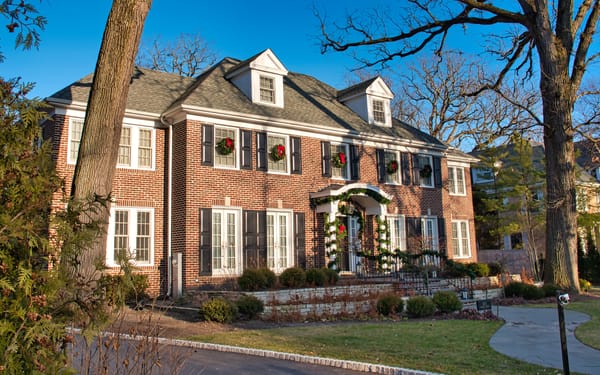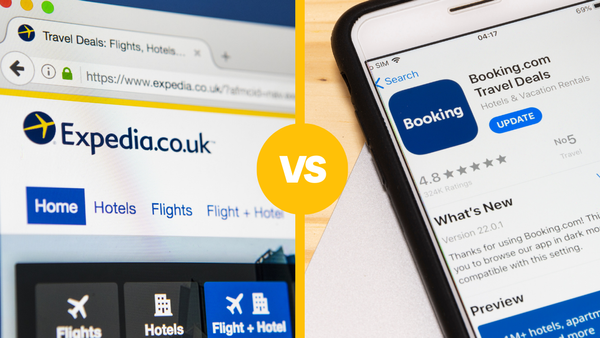Airbnb FAQs: Age Policy Explained [+ Safety Tips]
![Airbnb FAQs: Age Policy Explained [+ Safety Tips]](/content/images/size/w1200/wordpress/2023/09/lady-taking-photo-jpeg.webp)
Safety is crucial to Airbnb. One way that it tries to keep all Airbnb users safe is by setting minimum age requirements. Not only do they keep the host and guests staying at the property safe, but these age restrictions can also have a positive impact on the wider community and industry as whole.
To find out how these age requirements can impact you, here’s a quick overview of some of the most commonly asked questions. Aside from using the Airbnb age requirement, there are also other strategies and tools that you can implement to rent responsibly, such as using a property management tool like iGMS, as this article will explain.
How Old Do You Have to Be to Rent an Airbnb?
First things first, guests who want to book an Airbnb rental must be at least 18 years old. In fact, according to its Terms of Service, you also need to be 18 to create an Airbnb account, whether as a guest or a host. This means that there’s also the same minimum age requirement for hosting.
How Does Airbnb Prevent Underage Guests From Booking?
To help enforce this minimum age, an Airbnb guest must provide proof of age when they book a rental. Documents that are accepted are a driver’s license, passport, or national identity card.
Depending on the country where the listing is located, hosts may also be obliged by local law to check ID when guests check-in. This is, for instance, the case in European countries like Portugal and Germany.
Are There Any Exceptions to the Airbnb Age Limit?
The short answer is yes. There are certain instances where younger Airbnb guests are allowed to stay at the property or when guests who are 18 may still not rent the property.
For example, in the case of families traveling together, children younger than 18 are allowed to accompany their parents. Minors just can’t create their own Airbnb account or stay at a rental on their own. Also, parents will need to double-check that the property is indeed suitable for kids and that each additional guest is registered for that reservation.
Another example of when it’s not as clear-cut is when younger guests who live locally want to book an entire home. In the United States as well as a few other countries like Canada, the United Kingdom, Spain, and France, guests need to be at least 25 years old and have a minimum of three positive reviews (and zero negative reviews) to book an entire home in their hometown or local area.
Guests who don’t meet this criteria are still allowed to book any type of listing as long as it’s not in their local neighborhood. Alternatively, if they need to stay locally, they can book a private room or a hotel room on Airbnb.
It’s also important to keep in mind that the age requirement might be different for other countries. If in doubt, it’s best to reach out to Airbnb support.
Why Does Airbnb Have an Age Policy?
The Airbnb platform introduced this specific rule about guests younger than 25 a few years ago to help reduce unauthorized house parties. While these parties are a rare occurrence, some of them have been linked to fatalities. It’s also a measure to prevent potential rowdy guests from disrupting neighbors.
While Airbnb might have this exception, it still doesn’t give hosts free reign to reject a reservations request based on age. Airbnb hosts will also need to keep Airbnb’s nondiscrimination policy in mind.
Here, you’ll find specific guidance about considering a potential guest’s age and familial status. This policy makes it very clear that Airbnb hosts aren’t allowed to use different Ts and Cs based on the age of a guest or his/her familial status. They may also not use this criteria to decline a reservation.
It’s also important to remember that your Airbnb rental doesn’t operate in a vacuum. While you’ll need to adhere to Airbnb’s age requirement and other policies, you’ll also need to consider local laws. That said, local law mostly focuses on long-term rentals to ensure all citizens have access to fair housing, but it’s still worth checking first.

Other Strategies to Avoid House Parties
Age is only but a number, after all. The platform acknowledges that older guests can also become “bad guests”. The reverse is also true and most younger guests will treat your vacation home respectfully.
As such, hosts will also need to incorporate other strategies into their hosting routine to reduce the likelihood of their Airbnb rental being used as the venue for the next big event.
Here are a few ways worth exploring:
- Use a screening service
There are apps, such as SUPERHOG, that can double-check the guests’ details. Included in its checks is comparing the guest’s phone number and email address to authoritative databases.
For US guests, it will also check the US sex offender register. While it doesn’t run thorough background checks, it’s still a useful service and, aside from preventing parties, it can also minimize fraudulent bookings.
- Invest in noise monitoring
In addition to using a guest screening service, it’s also a good idea to invest in a noise monitoring tool. Hosts can, for example, check out NoiseAware or Minut.
Basically, it will monitor the noise levels inside the rental. If it exceeds a specific limit, the host will be notified.
Just like you expect your guests to be upfront and open about their reservation, it’s only good business practice to extend guests the same service and disclose the presence of such a device prior to booking. In fact, one of the conditions that Airbnb sets for the use of noise monitoring devices is that these must be clearly disclosed in the listing description.
- Prohibit parties in your house rules
Hosts can also include a section about house parties in their rules. Aside from disallowing house parties or events, here are examples of other house rules that they can include to protect themselves, their property, and the neighborhood peace.
- This Airbnb rental is located in a residential area. The quiet hours are between 11 p.m. and 8 a.m. to ensure that our neighbors can enjoy a night of undisturbed sleep.
- If a neighbor reports excessive noise, your reservation could be terminated and you’ll be asked to leave our property and you’ll lose any rental amount already paid.
- No more than four visitors are allowed during the day.
- It’s the responsibility of the renter to ensure that all other guests comply with the house rules.
- Please park your vehicle in the designated space only. If you need to park on-street, please consider our neighbors by ensuring that you don’t block access to their properties.
- Smoking is not permitted anywhere inside the property. If you want to smoke, you may only smoke outside in the designated area.
- In the event that damage to the property or its content is not covered by our insurance or it exceeds the security deposit, the cost to repair or replace will be billed to the guests.
Even if your vacation home is suitable for guests of all ages, it’s still a good idea to include a specific rule about children. Use your house rules as an opportunity to remind the adults in the group that children should be supervised at all times and that they remain responsible for the safety of any children that stay at the property.
- Create your Airbnb listing for a specific target guest
The platform’s nondiscrimination policy allows hosts to highlight specific features that could make the vacation rental unsuitable for guests of a certain age. For example, if there’s a steep staircase without a baby gate, hosts can draw attention to this and note that the property is unsuitable for toddlers.
This also means that if you want to avoid hosting certain age groups like college students on spring break, you can, for example, emphasize that your property is located in a quiet, residential neighborhood. Though, it needs to be factually correct. In other words, you may still not reject their booking, but you may write an accurate description of your property that will discourage them.
Airbnb Experiences
Hosts who offer Airbnb Experiences might want their offering to have some “party vibe”, but they still need to consider age restrictions. For example, if you’re teaching a cocktail masterclass where alcohol will be served, local law is very clear about the minimum age requirement. In other cases, the law will be less clear and you’ll need to use your own discretion. You can also refer to these guidelines to ensure your Airbnb Experience remains a positive one for all participants.
Should You Set an Age Limit for Airbnb Experiences?
If you’re offering an Airbnb Experience, the Airbnb platform also lets you set a minimum age for your Experience. Depending on the type of activity that you offer, you might want to consider doing this.
Here are a few factors to keep in mind when deciding if your Experience will be suitable for all ages:
- The physical demands of the activity
- The venue’s own age restrictions
- The type of content
For example, if it involves a long hike across dangerous terrain, toddlers might have the energy but lack the physical strength to participate. In this case, limiting it to older age groups will be recommended.
As for the content, consider what the Experience entails. It might be about an appropriate topic, but if there will be a lot of swearing, it’s better to exclude younger ears.
How Do You Set an Age Limit for Airbnb Experiences?
To set an age requirement for your Experience, you can follow these steps:
- On your desktop, go to the Listings section.
- Select the Experience for which you want to add an age requirement.
- Click on Guest requirement.
- Select Minimum age and choose the minimum age requirement.
- Remember to click on Save and continue.

Optimize Your Airbnb Hosting Experience with iGMS!
Addressing Airbnb FAQs about age and party restrictions is crucial for maintaining a harmonious and lawful hosting environment. iGMS is here to support hosts in managing such concerns effectively. Our platform offers a range of features to help you enforce house rules and manage your property seamlessly:
- Automated Messaging: Set up automated responses to address guest inquiries about age and party restrictions promptly.
- Channel Manager: Manage your Airbnb listings and ensure your house rules are consistently applied across all platforms.
- Airbnb Automation: Automate various aspects of your Airbnb hosting, including rule enforcement notifications.
- Cleaning Management: Schedule cleanings between bookings to ensure your property is always in top condition.
- Direct Booking Management Toolset: Manage direct bookings efficiently and enforce your rules effectively.
- Payment Processing: Handle secure transactions and deposits to safeguard against potential damages from parties.
Navigate through Airbnb’s age and party restrictions with ease and confidence with iGMS. Explore our features and elevate your hosting standards today!






